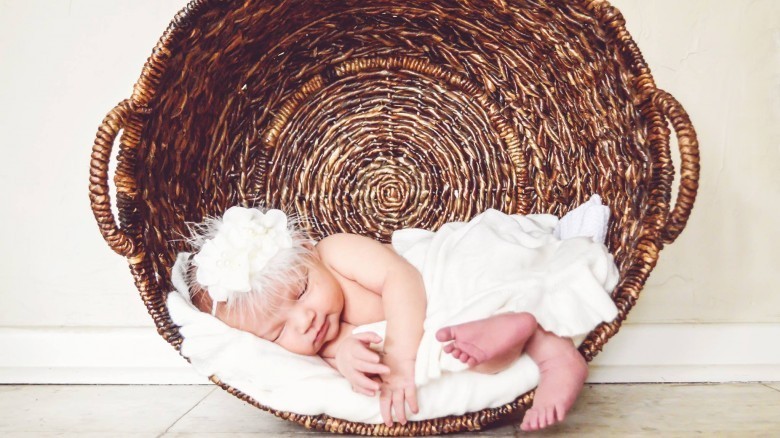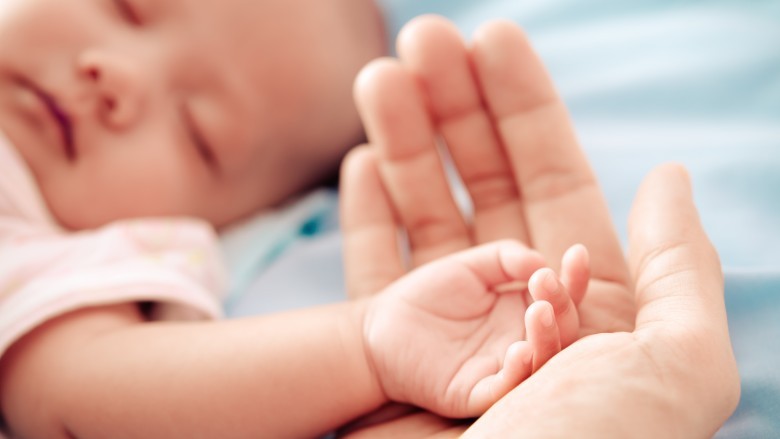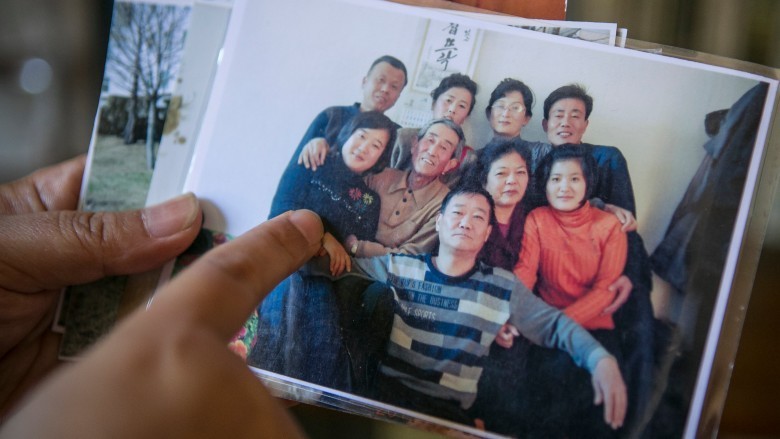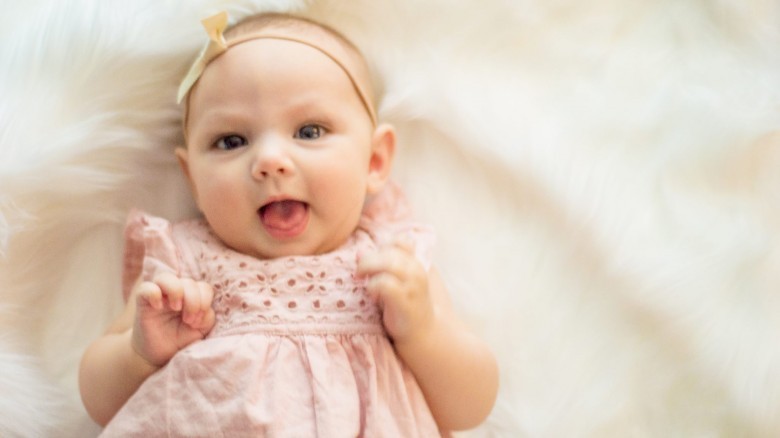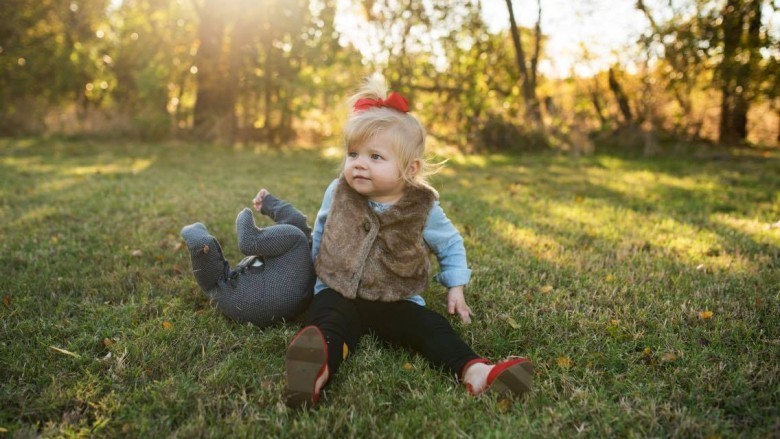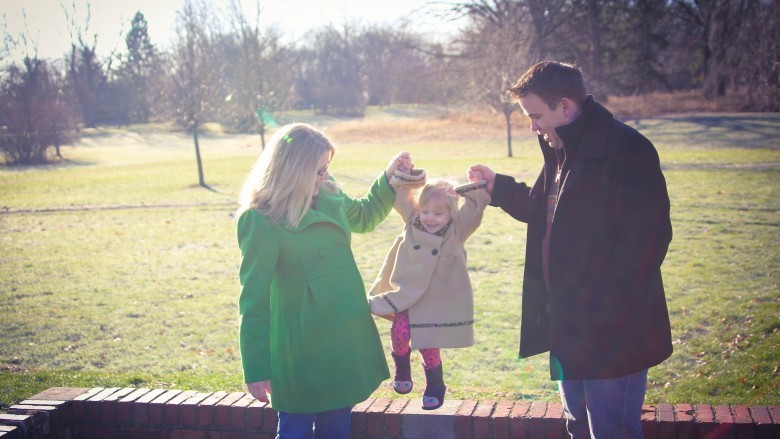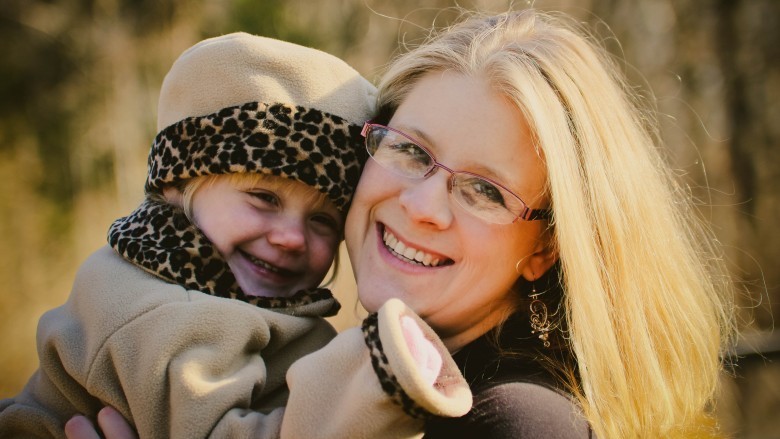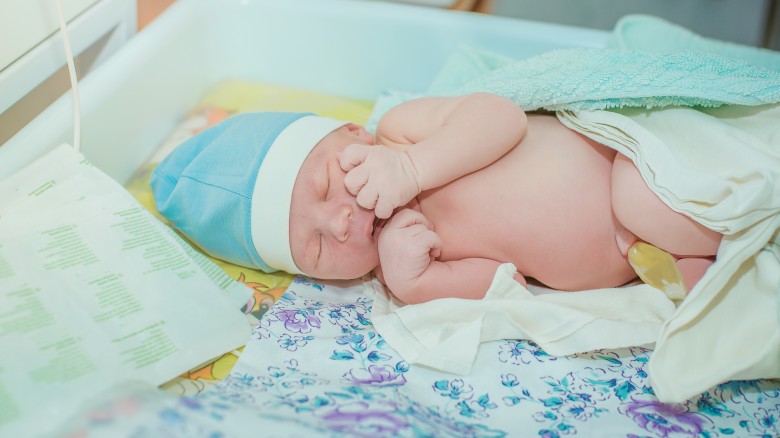Are You Really Ready To Have A Baby?
In today's world, there are often more stringent requirements to adopt a golden retriever than there are to create a human being. And once that little bundle of joy arrives, it's only a day or two of help from the pros before parents are ushered out of the hospital doors with very little instruction on what to expect from this tiny new life snuggled up in the back seat.
There is some truth to the old adage "there is no perfect time to have a baby." But there are irrefutably times that are more right than others. I spoke with some experts to get their thoughts on what people should consider before becoming parents. As a mother of two amazing little girls and a surrogate who has personally transformed ordinary people into parents, I know firsthand the life-altering gift a child can be for a family. For those who might be starting to dream of booties and bonnets, here's a checklist to see if you're really ready to have a baby.
You and your partner both want a baby
Possibly the most important conversation to have before you pick out nursery themes is "do we both want this?" While it's true you don't have to be married or even in a committed relationship to have a child, if your baby plans involve a full-time partner, making sure both people are committed to the idea of children is paramount in ensuring your family's overall happiness. I asked Marriage and Family Therapy, Inc.'s Lisa Bahar, a marriage and family therapist, her thoughts on what couples should consider before bringing a new child into the relationship.
"Making sure both are on board is essential," she said. And ultimately the baby will pay the price for the pregnancy if one partner isn't fully committed. Couples should make sure there are no assumptions about their expectations, and it's never a good idea to try to sneak in a pregnancy in hopes that the other person will come around. Babies bring on an entire new host of challenges. There's just no room for resentment when children are involved.
Single parents aren't off the hook, either. Although single parenthood has become more common than even the nuclear family over the past few decades, single men and women should check in and seriously consider what having a baby might mean for potential partners in the future.
Your career is ready for a baby
According to a 2015 survey from the Bureau of Labor and Statistics, more than 60 percent of married couples with children have both parents at work. That means more than half the families in the United States are juggling sick days, work travel, and daycare. I asked Bahar what people need to think about career-wise when it comes to parenthood.
"I am one to say, 'You can have it all, but not all at once,'" Bahar said.
She said to set and focus on realistic goals. Some people want to have a high-powered career, raise a baby, be married, maintain friendships and go to school. The likelihood of one area taking a backseat to another is pretty certain, so Bahar encourages people to just keep in mind that the baby's needs are going to have to come first for a while.
"Accept that baby is now in control and the boss," she said.
Kids get sick and emergencies can happen. It's important to know where your company stands on your work-life balance. Check with your boss about maternity and paternity leave. Think about who will take care of your child if you have to travel for work. Ask about telecommute options for times when you might have to be home with a sick toddler. Hand, foot and mouth disease does not discriminate, and neither should your workplace. So make sure your career is conducive to kids before they get here.
You have a support network
While having a partner isn't a necessity for building a family, having a support network is. Bahar said it's not only essential to have friends or family close by in case of emergencies, but having parenting peers to lean on is equally as important. She suggests building your village through mommy playgroups and daddy boot camps, or even trying individual and couples therapy as a source of support. Becoming a parent is a wild ride no one can appreciate until they strap in and experience it for themselves. But having people to lean on who understand and are ready to help is way more valuable than all the bottle warmers and designer burp rags on earth.
You can afford a baby
The USDA has a calculator that helps estimate the average cost of having one or more children. According to their chart, it costs more than $16,000 per year to have one child under the age of 1. And a 2014 report shows that parents can expect to shell out an inflation-adjusted amount totaling more than $300,000 to get that kid to his or her 18th birthday.
Katie Kirk, a mother of a toddler and CPA from Texas, told me she crunched some numbers for her sister who was thinking about having children. Kirk said it's a good idea to overestimate what a baby will cost because of the unexpected surprises that undoubtedly pop up in parenthood. Kirk's little one had sensitive skin that was only soothed by one brand of diapers, and it wasn't the cheap kind. She had intended to breastfeed, which is virtually free. But when it didn't work out she had to switch to formula, and her baby would only tolerate the more expensive gentle tummy type. The formula alone cost her more than $1,400 over the course of six months. "And that's bulk concentrate, auto-ship with reward discounts and everything I could find," Kirk said.
As someone who deals with finances for a living, Kirk had prepared her budget on the overly-cautious side, so they were able to financially adjust. But she's also thankful for an uneventful pregnancy and delivery since even one day in the NICU can send hospital bills through the roof.
You're done sleeping for a while
Having a baby will introduce you to a whole new skillset you never knew you had. There are classes for diaper changing, baby wearing, and breastfeeding, but maybe the biggest skill you'll develop is the ability to function as a human being with little to no sleep. And they just don't offer classes on that. A baby will suck the sleep out of your life like some sort of adorable human torture device. Newborn life brings a whole new level of sleep deprivation to the game. I asked doctor of psychology Raychel Muenke what effect sleep deprivation can have on a new parent.
"The sleep deprivation is real," she said. According to research in the Journal of Neuroscience, there is a link between sleep deprivation and impaired emotional processing and regulation. When people are sleep deprived, they are more likely to negatively react to seemingly neutral situations. Flipping out when your partner asks, "Can you help with the dishes?" can take a serious toll on the relationship.
Try to consider what sleep deprivation will mean for the parent or parents who go back to work after the baby is born. Sleeping in on weekends will only work if you have a willing partner or you hire a nanny. And night nannies are definitely a thing. Muenke said it's important to recognize that sleep deprivation is normal, but very real. Her own son had severe acid reflux, and he needed to be held upright at night for the first 8 months of his life. Asking for help from her partner and setting up a support system was her saving grace.
You are prepared for the unexpected and good with making mistakes
Muenke said parenting is one area where no matter how hard you try, or how great your intentions are, sometimes you will fail. She advises people to do their research, do their best, and to remain flexible. "Plan A is not going to always work," she said. "I have needed plans C, Q, and Z sometimes with my children." She said it's good to ask yourself, "How do I do when I'm not in control?" Parenting brings plenty of moments where you just aren't in control, and people with a strong need to be in charge might need to have some relaxation methods in place to help them let go.
I also asked relationship and etiquette expert April Masini, of AskApril.com, her advice for people before they embark on their journey to parenthood.
"It's one thing to register and buy cute onesies," she said. "And another to really be ready to be a parent."
Babies can't save for college, nor can they pay the doctor for catching their first ultimate trust fall out of the birth canal. Those responsibilities fall on the parents. It's not a marriage, and parents can't just divorce a baby if things don't work out. It's a much more permanent, intimate bond, and people need to be ready to care for than child no matter what. Illness, special needs education, and childcare expenses are all the responsibility of the parent once they sign up for the job. They have to take the initiative to plan as best as they can for the big curve balls.
You are prepared to die
The sleep deprivation and constant worry won't actually kill you, but your eventual death has to be a part of the conversation about creating life. Children have a natural way of getting you to realize your own mortality, but becoming a parent means you have to actually make plans for the party that keeps rocking after you leave. Masini said potential parents need to tackle those difficult death conversations and ensure they have a life insurance policy and estate plan ready to go.
"The ugly 'what ifs' are what those who are truly ready for parenthood are willing to face," she said. "If you can't face the dark side of what being a parent means, you're not ready."
You are physically ready to have a child
While you're planning for your own death, take a second to examine your current vitality. There is no ideal age to have a baby, but you want to make sure you're relatively healthy. Muenke, who is also executive vice president of the fertility app Kindara, said using a fertility app can give women valuable information about their body. Are you ovulating? Do you have an optimal luteal phase to support a pregnancy? Knowing your body well is an important step in preparation to have a baby. Even if you're not ready now, checking in on your fertility can give you a heads up in case you need a little help conceiving.
Masini said the desire to become a parent also has to align with your ability to parent. Single parents as well as couples have to consider their own health as just as important, and even sometimes more important, than the baby's health. It goes along with the idea of putting on your oxygen mask in an airplane emergency before assisting others.
Human infants are some of the most dependent newborns in the animal kingdom. Masini said babies will rely on you for every primal need they have for a while, so if you have health issues or addiction issues that may impede your parenting, hang back and reconsider until you can feel confident about your own health.
You want to put someone else's needs before yours
Muenke told me striking a balance between self care and the needs of the child is essential to being a good parent. And self care will change throughout the child's life. If you have a very young child, self care might look like time to go to the bathroom alone (yes, sometimes you will carry the baby with you to the bathroom), take a shower, or read an article in the rare quiet moments between diapering and feeding.
People who didn't plan for parenthood are thrust into this selfless role, but if you have the option it's best to mentally check in with yourself before the baby arrives. It's one thing to be forced to put someone else's needs first. It's another to choose to. If you don't feel like you've sown your wild oats, or you're planning a canoe trip down the Amazon River, then you might want to hold off on having a baby. With a newborn in your life the only Amazon you'll be looking at for a while is the one with free two-day shipping on diapers. Muenke said it's not necessary to check off every box on your bucket list before you procreate, but It is important to realize that the kinds of spontaneous adventures before children are at least more challenging after kids. Yes, you can still set off on a backwoods camping trip or a luxurious beach holiday, but you may be toting a portable crib, car seat, diaper bag, medicines, a stroller, and a baby carrier. Babies come with their own set of crazy adventures, and while they are often more wonderful than you could have ever dreamed, it's best to treat this adventure like any other and make sure you're prepared.
Are you ready?
Ultimately, there is no "perfect time" to have a baby. Parenting is messy, and it adds a new level of chaos to a once orderly existence. Becoming responsible for another person sometimes forces you to re-examine who you are, what your purpose is, and how you can be the best example for that little human to follow. Kids have a way of making us realize both how short our time is here on earth, and yet how important life can be. It's an amazing journey that changes your entire world. The only question is: are you ready?
